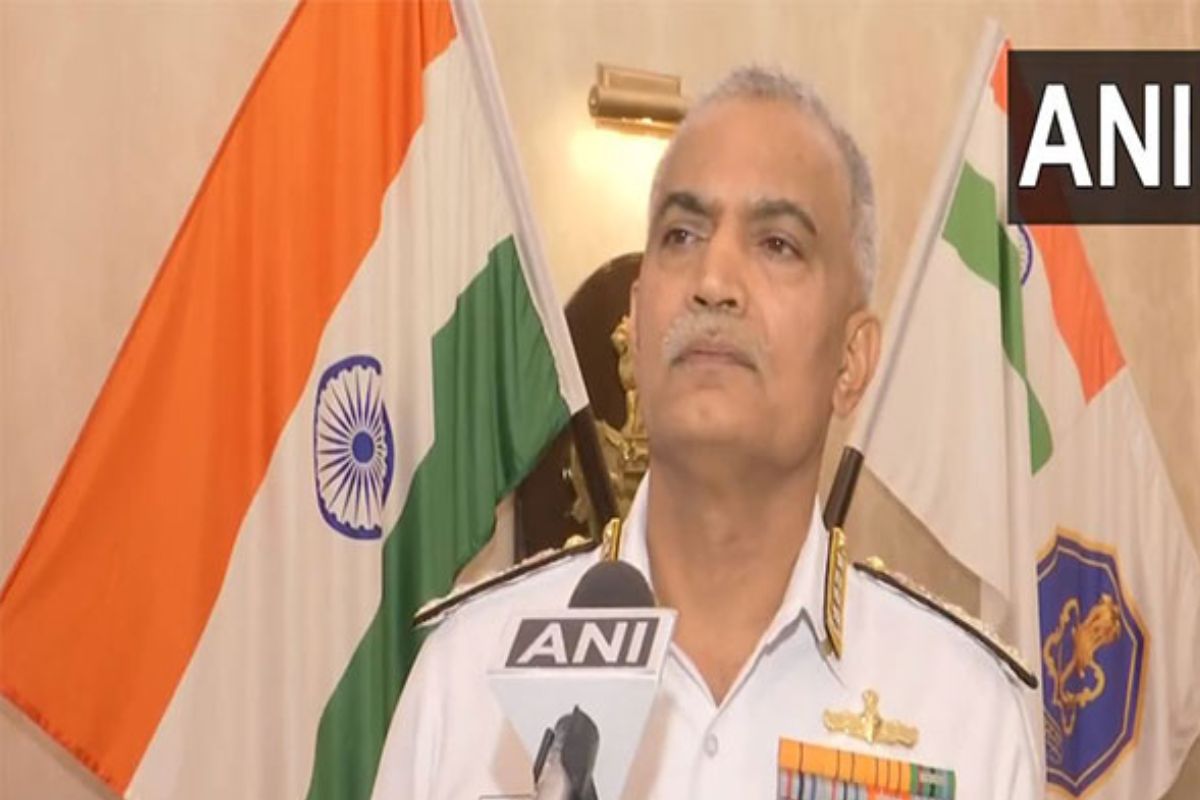Amid the questions being raised over the capabilities of the proposed Predator drone deal with the US, Chief of Naval Staff Admiral R Hari Kumar on Wednesday said the drone has got long endurance and can stay in the air for 33 hours.
In an interview with ANI on the capabilities of these drones, the Navy Chief said that the drones can help in keeping a large area under surveillance beyond 2500 nautical miles. He also stated that the Navy has operated these drones on lease for over 12,000 hours to keep an eye on adversaries and provide a lot of capabilities to the defence forces who are keen to procure them.
Advertisement
He said the Navy has been operating these drones since November 2020 after two of them were leased for surveillance in maritime areas.
“Indian Navy has been operating these drones. They fall in the category of the HALE, (high altitude long endurance drones). So, we realised there is a need for having these drones for better surveillance and increased maritime domain awareness,” Kumar said.
He further added, “So we had taken two of these on lease from November 2020 onwards. And since then we have been operating it.”
He said to guard the Indian Ocean region, one has to go 2500 to 3000 miles for various requirements like knowing who is operating in these waters, why are they there and what are they doing there.
Further highlighting the strike capabilities of the Predator drones, he said that in peacetime, the Navy do ISR missions that is Intelligence, Surveillance and Reconnaissance missions and when there is a crisis or there is combat etc, there is a possibility of using these drones for detecting, tracking and targeting also.
Explaining the capabilities of the drones in detail, the Navy chief said if you just look at the map here (says while pointing towards map), it’s a very large area, you have to keep almost to go as far as 2500 to 3000 miles to keep that area under surveillance for various requirements.
He said the drone helps to know who all are operating in the area of interest of the Indian Navy.
He said, “The Predator unmanned system, has got long endurance, almost 33 hours. It can stay in the air and it can reach the far reaches of the ocean and areas that you want to keep under constant surveillance, which is not really possible by a satellite”.
“These drones are able to stay there for a longer duration and keep it under surveillance and if somebody is transiting in these waters, we can continuously keep it under watch. So that is a big advantage and we have now learned quite a bit about its capability. We are satisfied with it and that is why we are very keen that these are procured,” he said.
Asked about the ways in which the system will help in indigenisation and ‘Make-in-India’ in defence scheme of the government, the Admiral said that right now, “We don’t have the technology for these HALE UAVs. They are in the high-end category because of their endurance and altitude, they can fly above 40,000ft and so on.”
“So by inducting these, I think the initial ten will come in, built in the US and come here. The rest will be built here, so that will give us the advantage of various technologies that can be transferred in terms of radar processing, sensor fusion, then some of the composites that are part of the aircraft, then titanium alloy castings for the undercarriage and so many others, payloads integration of the weapons,” he added.
The chief said that since 21 aircraft are going to be assembled here, there will be a requirement for smaller companies, MSMEs and startups, etc, to participate in it. So, it will provide an opportunity for the aerospace industry.
He said an MRO (Maintenance repair and overhaul) is also being set up here and therefore, engine components will be available for engine repairs.
He said the deal can also tune the country into a hub for drone hub as all the HALEs in the region can be serviced here only.
“It will generate an entire ecosystem and facilitate the transformation of India into a global, say, unmanned aerial system hub for innovation like it was envisioned by our honourable Prime Minister,” he stated.
He said the existing drones in the Navy are already providing surveillance effort for the Air Force, and the Army.
“And we have used it for keeping surveillance in the Indian Ocean on our adversaries. It has helped in anti-narcotics operations. It has been interfaced with our fleet,” he said and added that the “one we are using right now has got much less capability than the ones being procured in the near future.”
“So once we are going to procure, they will have much better payloads, more payloads. It will have laser, synthetic aperture radar, it’ll have COMINT (Communication Intelligence), ELINT (Electronic Intelligence) and it will be hardened, it will have collision avoidance systems and can operate multi unmanned aerial vehicles in the same domain,” he said adding that the deal will provide “a lot of advantages will be there in that and that will really be a capability boost for us.”











